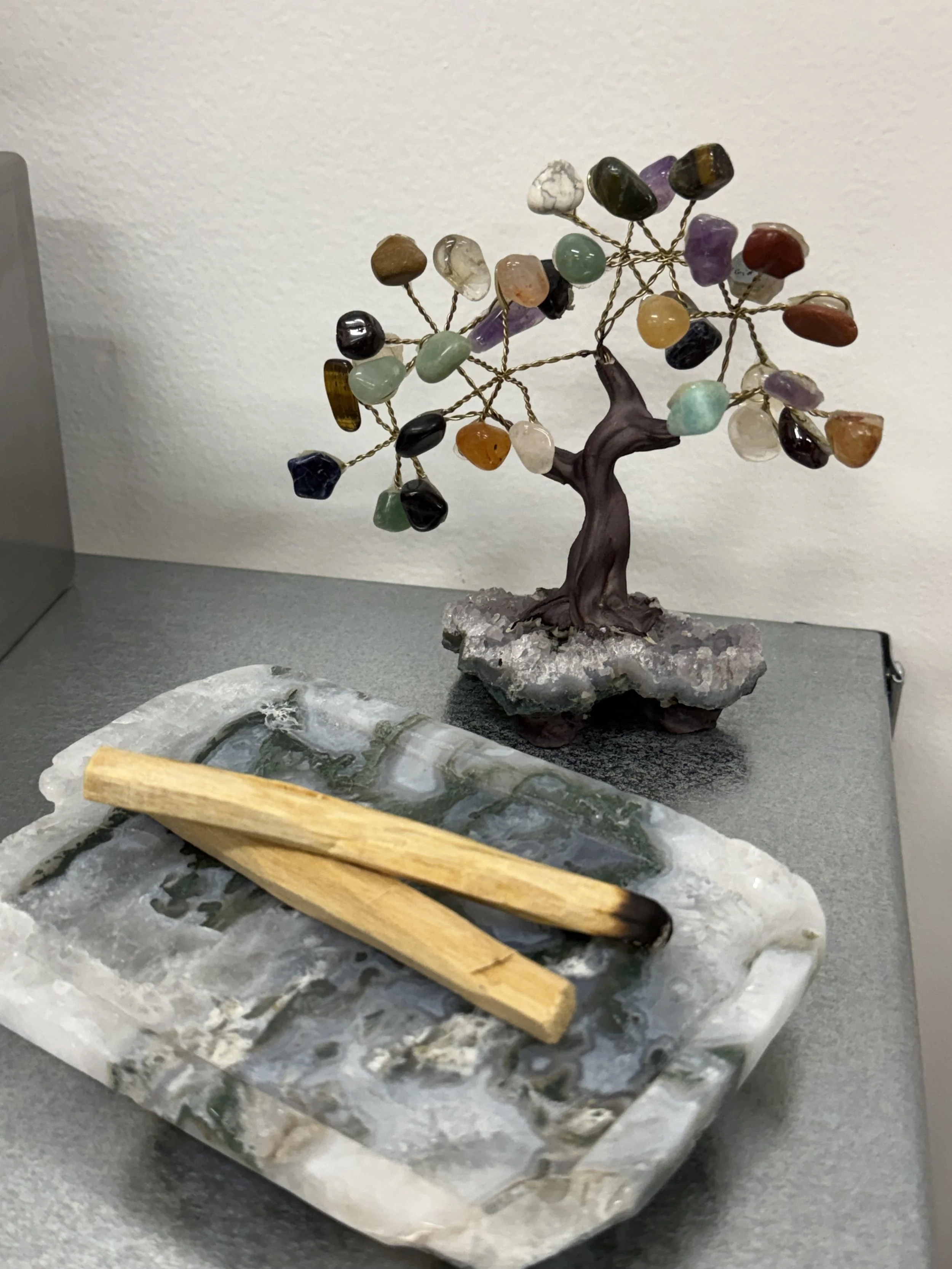What Makes Intergenerational Trauma Therapy Different?
-
Intergenerational trauma is the systemic experience of inherited trauma effects being passed down from generation to generation. Essentially, us as individuals may have inherited ancestral trauma experiences from previous generations. (I know - this honestly sucks).
BUT, naming these trauma experiences grants us more agency to actually transform and change the impacts that have been passed down to us.Trauma-informed therapy highlights that all the information that we need to heal is within us. We just need to look closer, and willingly shift the perspectives that may have been holding us back for so long. We are also inclusive of the life experiences that are apart of your life today that may also have been impacted by generational trauma experiences.
-
Traditional talk therapy methods like CBT (cognitive behavioral therapy) or DBT (dialectal behavioral therapy) may not be the most helpful for someone who has experienced generational trauma. It can be more helpful when it’s integrated with other therapy modalities like somatic therapy, IFS (Internal Family Systems), EFT (Emotion-Focused Therapy), or AEDP (Accelerated Experiential Dynamic Psychotherapy).
Bottom line: you may need more of an integrative, multi-cultural, trauma-informed approach to better process your emotional experiences! -
You could expect to meet with another human being who is dedicated to helping you further understand you. Therapy is a collaborative and mirrored space where we have the opportunity to explore self-concepts that have yet to be explored. The therapeutic process is never a one-size fits all. We’ll work together to figure out how we could best help you. That could be through skill building frameworks like DBT-CBT, or even through more abstract concepts such as metaprocessing or somatic experiencing.
Where you are at in your healing journey, I will meet you in the middle!
Inherited Healing Psychotherapy
Have you ever felt old, seasoned feelings of helplessness? A fear that old wounds may never heal? If so, I’m so sorry— I understand this experience. I resonate with you as a therapist, but also empathize with this experience as a person healing with their own experiences. It’s unorthodox, “taboo,” for therapists to be so vulnerable or personable— but it’s so necessary to understand that therapy is a human experience.
That includes you and me.
The experiences you inherit does not determine your forever
Books
Resources
Podcasts, Alternative Media, etc.
-
Relationship coach, Stephanie Rigg, discussed all things attachment-relationship science! Curious about transforming relationships in your life, this podcast may be for you.
-
Therapist, Kina Wolfenstein, offers neurobiology, relational, informed trauma therapy insights and dialogue in her podcast for those exploring healing complex PTSD (C-PTSD).
-
Relationship therapist, Esther Perel, hosts this podcast for couples and/or individuals who are seeking understanding around miscommunication, relationship conflicts, and more!
-
Stephanie Foo’s memoir detailing her personal and therapeutic journey in healing from C-PTSD. Read on for insight into how emotional “stuckness” exists in complex family dynamics and how re-discovering personal identity recovers the soul.
-
Licensed therapist, Resmaa Menakem, explores how the body holds our inherent instincts where we fight, flee, or freeze. He explains how we inherit trauma from a socio-cultural perspective! Great read for those interested in how intragenerational trauma exists from our mothers, and their mothers, and their mothers, and their mothers, etc.
-
A classic and insightful read into how our cultural and family dynamics interfere with our personal growth and roadblock resilience from forming. Being a child of emotionally immature parents is no joke - read this book for a need to feel seen and heard, and to join a collective of people who experience familial narcissism.
-
For those who intellectualize more than feel - this may be for you! Written by a therapist, a collection of helpful strategic tools to challenge and reframe persistent, negative thoughts.
-
An informative read on how healing begins from traumatic experiences that are more collective and systemic.
-
Repairing internalized trauma is easier said than done. This book offers strategies to breaking trauma cycles and living life in a regenerative path forward.
-
Written for those who are curious about intergenerational trauma - how it forms, starts, transitions and impacts on your life today. It provides readers with practical tools and techniques for healing.



